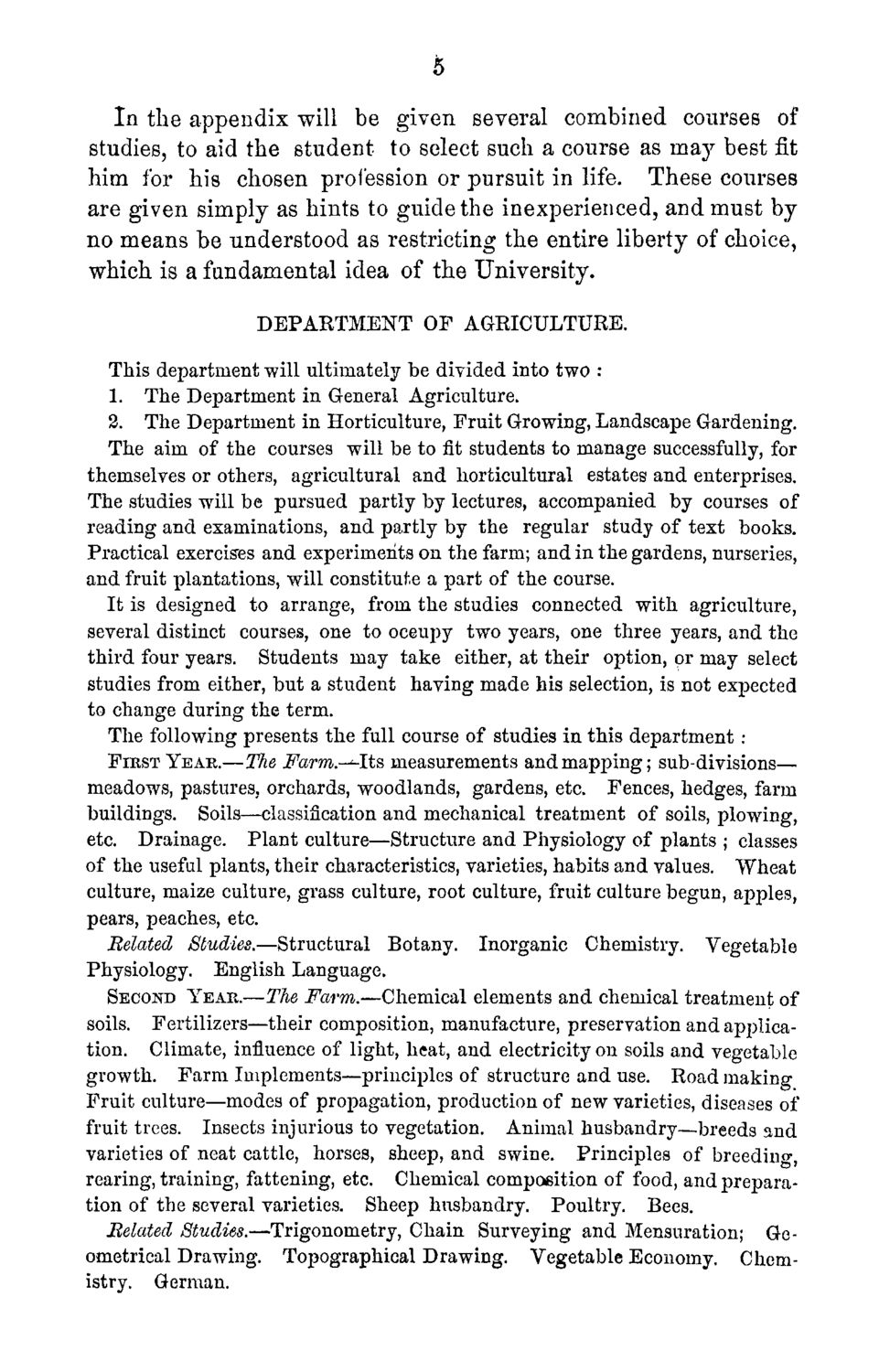| |
| |
Caption: Course Catalog - 1868-1869 VERSION A
This is a reduced-resolution page image for fast online browsing.

EXTRACTED TEXT FROM PAGE:
In the appendix -will be given several combined courses of studies, to aid the student to select such a course as may best fit him for his chosen profession or pursuit in life. These courses are given simply as hints to guide the inexperienced, and must by no means be understood as restricting the entire liberty of choice, which is a fundamental idea of the University. DEPARTMENT OF AGRICULTURE. This department will ultimately be divided into two : 1. The Department in General Agriculture. 2. The Department in Horticulture, Fruit Growing, Landscape Gardening. The aim of the courses will be to fit students to manage successfully, for themselves or others, agricultural and horticultural estates and enterprises. The studies will be pursued partly by lectures, accompanied by courses of reading and examinations, and partly by the regular study of text books. Practical exercises and experiments on the farm; and in the gardens, nurseries, and fruit plantations, will constitute a part of the course. It is designed to arrange, from the studies connected with agriculture, several distinct courses, one to oceupy two years, one three years, and the third four years. Students may take either, at their option, or may select studies from either, but a student having made his selection, is not expected to change during the term. The following presents the full course of studies in this department : FIRST YEAR.—The Farm.-^-Its measurements and mapping; sub-divisions— meadows, pastures, orchards, woodlands, gardens, etc. Fences, hedges, farm buildings. Soils—classification and mechanical treatment of soils, plowing, etc. Drainage. Plant culture—Structure and Physiology of plants ; classes of the useful plants, their characteristics, varieties, habits and values. Wheat culture, maize culture, grass culture, root culture, fruit culture begun, apples, pears, peaches, etc. Belated Studies.—Structural Botany. Inorganic Chemistry. Vegetable Physiology. English Language. SECOND YEAR.—The Farm.—Chemical elements and chemical treatment of soils. Fertilizers—their composition, manufacture, preservation and application. Climate, influence of light, heat, and electricity on soils and vegetable growth. Farm Implements—principles of structure and use. Road making Fruit culture—modes of propagation, production of new varieties, diseases of fruit trees. Insects injurious to vegetation. Animal husbandry—breeds and varieties of neat cattle, horses, sheep, and swine. Principles of breeding, rearing, training, fattening, etc. Chemical composition of food, and preparation of the several varieties. Sheep husbandry. Poultry. Bees. Belated Studies.—Trigonometry, Chain Surveying and Mensuration; Geometrical Drawing. Topographical Drawing. Vegetable Economy. Chemistry. German.
| |